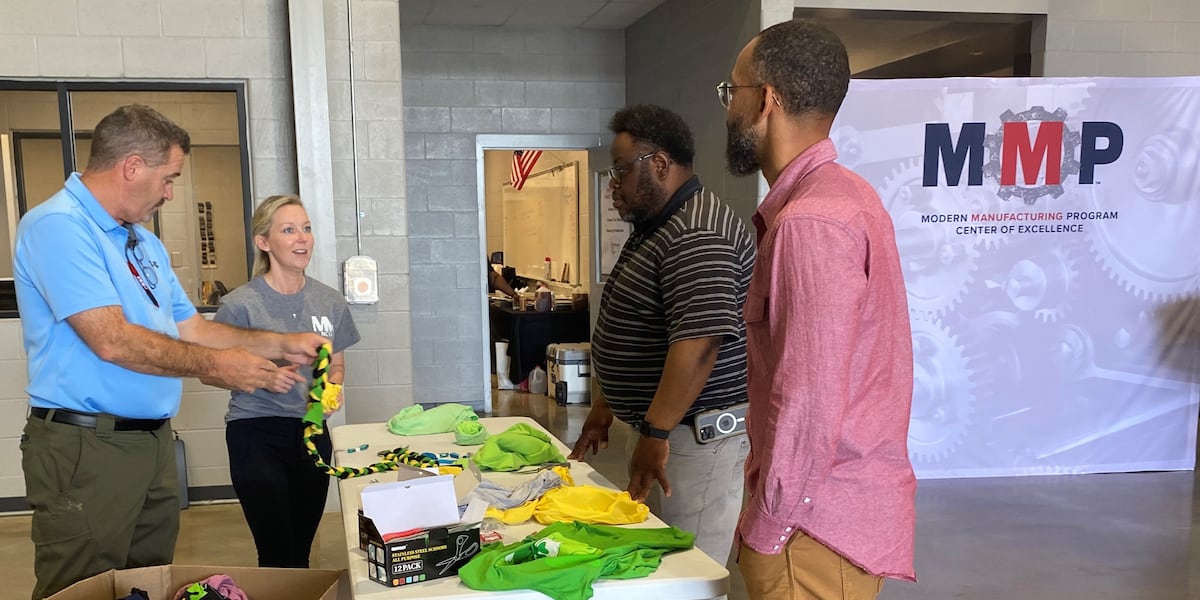Montana
County property tax dispute may go before Montana Supreme Court

HELENA — As more counties join an effort to challenge the state’s interpretation of property tax law, the legal questions could now be considered in the Montana Supreme Court.
This month, many county commissions have adopted resolutions, saying they won’t charge the full amount of school equalization property taxes the state has asked them for. State leaders filed in district court to block that move, and last week, a group of public education organizations asked the Supreme Court to step in.
The disagreement between counties and the state over these tax rates has been brewing for months. Equalization funding – intended to ensure equity in education across Montana’s school districts, and commonly known as the “95 mills” – is the one share of property taxes set by the state rather than by local jurisdictions.
Governments set their property tax rates in terms of mills. The actual amount of taxes charged is the property’s taxable value multiplied by the mill rate that each jurisdiction charges. Each mill is $1 per $1,000 of taxable value. When the value of property in a jurisdiction increases, one mill brings in a greater amount of money.
Counties, cities, school districts and other local governments have a cap on how many mills they can charge, so that the actual amount of taxes they assess rises by no more than half the rate of inflation, averaged over the last three years. When the assessed value of property increases significantly – as happened this year – they have to reduce, or “float down,” the number of mills they assess.
However, the state has consistently charged 95 mills for school equalization for the past 20 years, so their share of property taxes has increased. The counties are arguing that the same law that caps their mills also requires the equalization mills to float down. County commissions adopting that theory have voted to charge 77.9 mills this year instead of 95.
The state argues that it has the authority to charge the full 95 mills because of a provision allowing governments to “bank” mills – assessing mills in future years if they don’t assess all that they were authorized for in the current year. The Montana Department of Administration filed a motion in the 4th Judicial District Court in Missoula County earlier this month, asking the judge to rule that the state’s interpretation is correct and that the counties are obligated to go along with their calculation.
The latest court filing came from the Montana Quality Education Coalition, which includes organizations like the Montana School Boards Association and Montana Federation of Public Employees, as well as more than 100 school districts. MQEC said, if every county lowered its mills in this way, it could cost the state $79 million this year that would otherwise go toward school funding – while estimating it would only reduce taxes by $45 a year for a typical homeowner with a median-priced residence. They said, if only some counties took that action, it would lead to unfair tax discrepancies for residents based on where they lived.
MQEC argued there would be no way to recover the uncollected money later if the state prevails in its legal action, so they asked the Supreme Court to take on the case immediately and direct counties to levy the full 95 mills. The Supreme Court issued an order last week, giving counties 30 days to file a response to MQEC’s petition.
Some of the county leaders that have already lowered their mills have argued their action won’t have as significant an effect on schools as opponents have claimed. They said, since the equalization funding all goes into the state general fund, the state would be able to make up any loss to school revenues.
There may still be more legal actions. On Thursday, the Lewis and Clark County Commission is set to consider a resolution to authorize the Montana Association of Counties to pursue an original action with the Supreme Court, seeking a declaration of how to interpret the law and the rights and obligations of counties.
One big question is how quickly this issue can be resolved. Property tax bills are already being printed, and are expected to go out to property owners across Montana soon.

Montana
‘Uncomfortable’ position: How, why Marshals held out versus Billings

RAPID CITY, S.D. (KOTA) – Roughly half of the Rapid City Marshals roster left the team on Friday, Co-Owner Wes Johnson tells KOTA News.
Team ownership notified players this week that moving forward they will only get paid $250 per game – that’s the 25% agreed upon in the contract between the team and the Arena Football League. As a result, nearly a dozen players quit.
Wages have been the primary concern from players all season, not only in Rapid City but across the country. It’s what ultimately led to last Saturday’s game, May 11, against the Billings Outlaws to be forfeited.
CONTEXT: Marshals players ‘refuse’ to come out of locker room
On Monday of this week, KOTA News heard from former players Tim Lukas and Brian Villanueva on what made them hold out against Billings, and do it the way they did.
”We’ll do anything to play this game, and we’ll believe anyone that tells us really good things,” Lukas said. “The more that we started seeing cracks in the walls and some of the things that seemed like they were getting ignored by a lot of people, the more it became apparent that we had to act on it.”
Marshals players started brainstorming how they wanted to send a message several days before last Saturday’s game. While it remains unclear what exactly those conversations looked like between players in private, it’s known that the timing of their actions were deliberate.
“Things were getting dragged out in previous weeks and we wanted to make sure that you know decisions were made you know quicker, and that was part of the strategy,” Villanueva said. “If it was truly about making sure that we were taking care of the players than I felt like there would have been a game played, honestly.”
READ: Hear from Marshals ownership as AFL receives backlash
Players whole-heartedly believed that the team ownership would meet their requests and pay them in full before kickoff against the Outlaws. That did not happen.
The Marshals wanted to make a statement, loud and clear, and the end result was felt by their peers across the league.
“A lot of the guys were proud that we stepped up and that we stuck together as a team to write a message to the entire league,” Lukas said.
“Had we not done it in that way, I don’t think it would have been felt as strong,” Villanueva continued.
Although players thought that not playing was the right move, ownership believed otherwise. Forfeiting the game against Billings put the franchise in a “really uncomfortable” financial position, according to Marshals Co-Owner Wes Johnson.
“Wes usually tells us how much time he spends with this organization, and knowing that there’s not a lot of personnel or resources in the building, I know that they both (Wes and Rebecca) are working extremely hard on it,” Lukas said.
Looking back on all of this, Lukas is happy he came to South Dakota, but thinks that if he would have done more research, some of these issues wouldn’t have come as a surprise.
“I wish I would have dug a little bit further into some of the people who are at the very top, running the AFL, just for my own peace of mind,” Lukas said. “But as far as having regrets, I don’t have any regrets.”
On Tuesday of this week, league owners unanimously voted to appoint Jeff Fisher to AFL interim commissioner. Fisher is a former NFL head coach and serves as the president of operations for the Nashville Kats. This move pushes out former league commissioner Lee Hutton.
MORE: Jeff Fisher named interim commissioner of AFL
In addition to league front office changes, many teams have undergone schedule reconstruction to help with scheduling logistics among the teams left in the league. This will take several weeks to finalize, according to Chris Chetty of G6 Sports Group.
See a spelling or grammatical error in our story? Please click here to report it.
Do you have a photo or video of a breaking news story? Send it to us here with a brief description.
Copyright 2024 KOTA. All rights reserved.
Montana
DeSmet and City of Missoula working on interlocal agreement

MISSOULA — During the school elections, DeSmet School District had an interesting ask of its voters, the district asked voters not to support a bond that would have been used to purchase land to build a rectangular field for the school.
This request came after Missoula County scheduled to transfer the land in question to the city, because of this, the city and the school district began discussions on ways they could work together to build the field.
Parks and Rec Director Donna Gaukler explained why those discussions took place.
“There’s no real reason for local government to buy land from local government when all we really need to do is think about what’s the best use of all these regardless of who it’s owned by,” Gaukler said.
“City, county, one of the schools and how do we get the greatest benefit out of it instead of selling land back and forth let’s save our money for improvements and for maximizing the benefits of the land for the public.”
Although this is not the first time the city has made an interlocal agreement with a second party, Matthew Driessen the superintendent of DeSmet School was appreciative with the city’s willingness to find a solution that would be more beneficial to taxpayers.
“Coming together to say here’s a way for us to continue with the vision but not increase the taxpayer’s bill I think is pretty important,” Driessen said.
“I think that type of collaboration is the type of government cooperation that the people of Missoula are looking for.”
Gaukler says even with an interlocal agreement between the city and the district the development of the field will still cost taxpayers, but this will be the most efficient way to get it built.
“Land is really expensive in the valley, development is really expensive, so the better in our opinion that we can use those lands the better that we can jointly spend taxpayers dollars and share as many facilities and lands as possible the greater our quality of life is for less money.”
No agreement between the district and city is official yet but one is expected to be made within the next year.
Montana
Montana's Attorney General Said He Recruited Token Primary Opponent to Increase Campaign Fundraising – Flathead Beacon
HELENA — Montana’s attorney general told supporters he skirted the state’s campaign finance laws by inviting another Republican to run against him as a token candidate in next month’s primary so he could raise more money for the November general election, according to a recording from a fundraising event.
“I do technically have a primary,” Attorney General Austin Knudsen said last week when asked at the event who was running against him. “However, he is a young man who I asked to run against me because our campaign laws are ridiculous.”
Knudsen separately faces dozens of professional misconduct allegations from the state’s office of attorney discipline as he seeks a second term. He made the comments about his primary opponent during the fundraiser on May 11 in Dillon, Montana, according to the recording obtained by the Daily Montanan, which is part of the nonprofit States Newsroom organization.
In the recording, Knudsen is heard saying that Logan Olson “filed to run against me simply because under our current campaign finance laws in Montana, it allows me to raise more money. So, he supports me and he’s going to vote for me.”
Knudsen’s senior campaign adviser Jake Eaton declined to comment on the recording.
Olson, a county attorney in rural northeastern Montana, denied being recruited by Knudsen. Campaign finance records indicate his filing fee was paid by a longtime Republican operative who is also a Knudsen donor.
The state’s campaign finance watchdog agency, the Commissioner of Political Practices, is investigating complaints filed by the executive director of the Montana Democratic Party that allege an agreement between Knudsen and Olson.
Under state law, a person cannot pay or “promise valuable consideration” to another person to induce them to be a candidate, or to withdraw as a candidate.
Democrat Sheila Hogan’s complaints say Knudsen started raising donations exceeding the $790-per person allowed without a primary opponent long before Olson filed on March 11 — the final day for candidate filing.
“Olson is not a legitimate, good faith candidate for Attorney General,” both complaints state.
Eaton, who called the complaint against Knudsen frivolous, said it was “common practice for candidates to accept primary and general contributions and then return the money if there is no contested primary.”
He suggested Democratic Attorney General candidate Ben Alke, a Bozeman attorney, was also accepting more money than what is allowed from individual donors.
However, a search of Alke’s campaign finance reports shows only contributions to his primary campaign.
Knudsen and Olson have until May 23 to respond to the complaints, although Olson has requested an extension, commissioner Chris Gallus said Friday.
Olson has not raised or spent any money in the race, according to a report filed by his treasurer on Friday.
His April campaign finance report listed a debt of more than $1,500 to Standard Consulting of Helena for reimbursement of his filing fee.
“I did pay Logan’s filing fee and helped him file for office,” Chuck Denowh, a Republican operative and owner of Standard Consulting, said in an email Friday. “I did so because he asked me to.”
Denowh has donated $1,580 to Knudsen — $790 each for the primary and general elections.
Alke said the professional misconduct allegations and other actions by Knudsen are why he’s running for attorney general.
Knudsen is facing 41 counts of professional misconduct on allegations his office tried to undermine the Montana Supreme Court while defending a challenge to a state law about judicial nominations. The Commission on Practice is scheduled to hear the case in mid-July and recommend whether Knudsen should be punished.
Separately, in early 2021 Knudsen ordered the Lewis and Clark County attorney to dismiss concealed carry weapons charges against a man who allegedly threatened a restaurant manager trying to enforce the state’s pandemic mask mandate. Knudsen’s office later pleaded the case down to disorderly conduct.
In October 2021, a Helena hospital said three unspecified public officials threatened doctors after they refused to treat a COVID-19 patient with ivermectin, a drug for parasites that is not federally approved for the virus. Knudsen’s office later confirmed that he participated in a conference call with hospital executives and that he sent a Montana Highway Patrol trooper to the hospital to talk with the patient’s family after they claimed mistreatment — something the hospital denied.
“This sort of conduct from the chief legal officer and law enforcement officer of the state of Montana is inappropriate and I hope people are paying attention because this is just one of several issues with Austin Knudsen,” Alke said Thursday.
-

 News1 week ago
News1 week agoSkeletal remains found almost 40 years ago identified as woman who disappeared in 1968
-

 World1 week ago
World1 week agoIndia Lok Sabha election 2024 Phase 4: Who votes and what’s at stake?
-

 Politics1 week ago
Politics1 week agoTales from the trail: The blue states Trump eyes to turn red in November
-

 World1 week ago
World1 week agoBorrell: Spain, Ireland and others could recognise Palestine on 21 May
-

 Movie Reviews1 week ago
Movie Reviews1 week ago“Kingdom of the Planet of the Apes”: Disney's New Kingdom is Far From Magical (Movie Review)
-

 World1 week ago
World1 week agoUkraine’s military chief admits ‘difficult situation’ in Kharkiv region
-

 World1 week ago
World1 week agoCatalans vote in crucial regional election for the separatist movement
-

 Politics1 week ago
Politics1 week agoNorth Dakota gov, former presidential candidate Doug Burgum front and center at Trump New Jersey rally




















